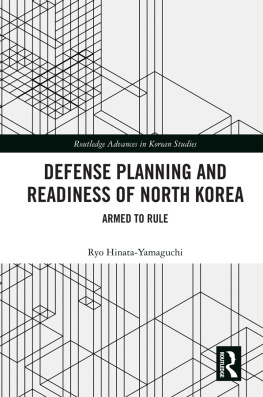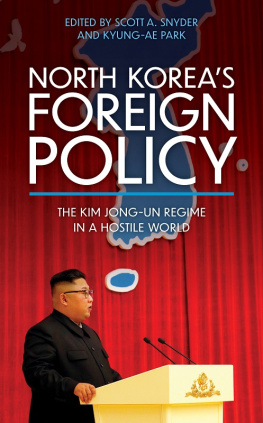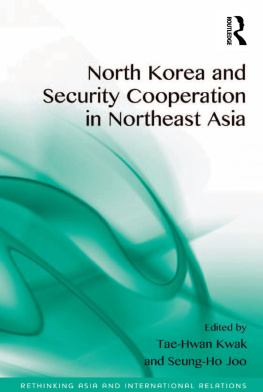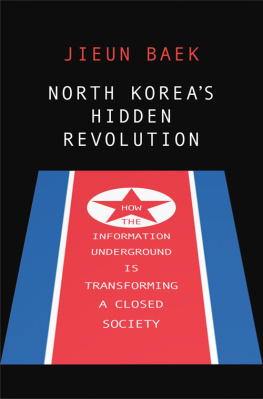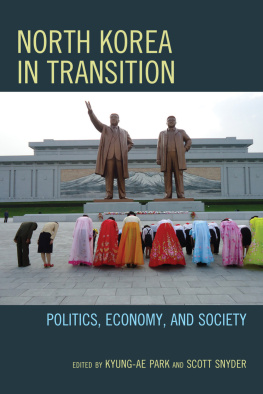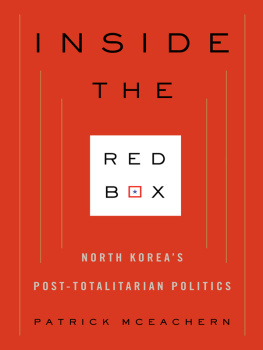Defense Planning and Readiness of North Korea
How has North Korea developed and managed its military readiness to achieve its strategic ends?
Hinata-Yamaguchi analyzes North Koreas defense planning by looking at how political, economic, and societal factors affect the Korean Peoples Armys (KPA) readiness and strategies. He answers four key questions: How have the internal and external factors shaped North Koreas security strategy? How do the political, economic, societal, and environmental factors impact North Koreas defense planning? What are North Koreas defense planning dilemmas, and how do they impact the KPAs readiness? What are the key implications for regional security and the strategies against North Korea?
This analysis, drawing on various Korean, English, Japanese, and Chinese sources on North Korea and military affairs, will be of great value to strategists and policy analysts as well as scholars of East Asian security issues.
Ryo Hinata-Yamaguchi is an adjunct fellow at the Pacific Forum, a visiting professor at the Pusan National University, and a project assistant professor at the Research Center for Advanced Science and Technology at the University of Tokyo.
Routledge Advances in Korean Studies
42Korean Adoptees and Transnational Adoption
Embodiment and Emotion
Jessica Walton
43Digital Development in Korea, Second Edition
Lessons for a Sustainable World
Myung Oh and James F. Larson
44The State, Class and Developmentalism in South Korea
Development as Fetish
Hae-Yung Song
45Development Prospects for North Korea
Edited by Tae Yong Jung and Sung Jin Kang
46The Road to Multiculturalism in South Korea
Ideas, Discourse, and Institutional Change in a Homogenous Nation-State
Timothy Lim
47Healing Historical Trauma in South Korean Film and Literature
Chungmoo Choi
48Exporting Urban Korea?
Reconsidering the Korean Urban Development Experience
Edited by Se Hoon Park, Hyun Bang Shin and Hyun Soo Kang
49Defense Planning and Readiness of North Korea
Armed to Rule
Ryo Hinata-Yamaguchi
For more information about this series, please visit: www.routledge.com/asianstudies/series/SE0505
First published 2021
by Routledge
2 Park Square, Milton Park, Abingdon, Oxon OX14 4RN
and by Routledge
52 Vanderbilt Avenue, New York, NY 10017
Routledge is an imprint of the Taylor & Francis Group, an informa business
2021 Ryo Hinata-Yamaguchi
The right of Ryo Hinata-Yamaguchi to be identified as author of this work has been asserted by him in accordance with sections 77 and 78 of the Copyright, Designs and Patents Act 1988.
All rights reserved. No part of this book may be reprinted or reproduced or utilised in any form or by any electronic, mechanical, or other means, now known or hereafter invented, including photocopying and recording, or in any information storage or retrieval system, without permission in writing from the publishers.
Trademark notice: Product or corporate names may be trademarks or registered trademarks, and are used only for identification and explanation without intent to infringe.
British Library Cataloguing-in-Publication Data
A catalogue record for this book is available from the British Library
Library of Congress Cataloging-in-Publication Data
Names: Hinata-Yamaguchi, Ryo, author.
Title: Defense planning and readiness of North Korea : armed to rule / Ryo Hinata-Yamaguchi.
Description: Abingdon, Oxon ; New York : Routledge, [2021] | Series: Routledge advances in Korean studies | Includes bibliographical references and index.
Identifiers: LCCN 2020051591 (print) | LCCN 2020051592 (ebook) | ISBN 9780367482862 (hardback) | ISBN 9780367771102 (paperback) | ISBN 9781003039051 (ebook)
Subjects: LCSH: Military planningKorea (North) | Korea (North)Armed ForcesOperational readiness. | Korea (North)Military policy. | Korea (North)Defenses.
Classification: LCC U155.K7 H55 2021 (print) | LCC U155.K7 (ebook) | DDC 355/.03355193dc23
LC record available at https://lccn.loc.gov/2020051591
LC ebook record available at https://lccn.loc.gov/2020051592
ISBN: 978-0-367-48286-2 (hbk)
ISBN: 978-0-367-77110-2 (pbk)
ISBN: 978-1-003-03905-1 (ebk)
Typeset in Galliard
by Apex CoVantage, LLC
Everything I have accomplished in my career, including this work, was made possible with the support from my family, friends, colleagues, mentors, and institutions who are too numerous to list here.
This effort was made possible with the constructive and insightful advice from my colleagues, friends, and mentors. In particular, I thank Carl W. Baker, Ralph A. Cossa, James Cotton, Paul Dibb, Brad Glosserman, Andrei Lankov, Bernard Fook Weng Loo, and Michishita Narushige for their guidance and mentorship over the years and for their comments that were critical to this study. Special thanks also to my great friend Collin Koh Swee Lean for all the chats, insights, and suggestions at various critical junctures. I am also deeply indebted to an unnamed Admiral for inspiring me to pursue my career in security and defense affairs, and for all his mentorship throughout the years.
Without the Pacific Forum, my career and this project would not have been possible. I particularly thank Carl W. Baker, Ralph A. Cossa, Robert P. Girrier, Brad Glosserman, James A. Kelly, and Lloyd R. Joe Vasey for their mentorship. I also especially thank Ellise Fujii Akazawa, Georgette Almeida, An Sun-na, Mari Ching Skudlarick, Cho Sung-min, Christina Failma Bachynsky, Candace Chang, Nicole Forrester, Kerry Gershaneck, Justin Goldman, John Hemmings, Hong Seong-ho, Kisuh Jung, Sam Kim, Ariana Lania, Jenny Lin, Matsubara Mihoko, Brooke Mizuno, Liz Morquecho, Cristin Orr Schiffer, Chris Ota, Park Dong-joon, Crystal D. Pryor, David Santoro, Shimizu Aiko, Ariel Stenek, Shenelle Van, Yang Hong Xu, Ting Xu, Adrian Yi, Yang Yi, and Yomon Chisato who I closely worked with during my time in Honolulu as well as the other interns, fellows, staff, and also members of the Young Leaders program. I also thank the Atlantic Council, Center for Strategic and International Studies, Dong-A University, FM Bird, German Marshall Fund of the United States, International Crisis Group, Japan Ground Self-Defense Force, Japan Maritime Self-Defense Force Command and Staff College, Pusan National University, Research Center for Advanced Science and Technology at the University of Tokyo, S. Rajaratnam School of International Studies at Nanyang Technological University, Sasakawa Peace Foundation, University of Malaya, University of Muhammadiyah Malang, US Naval War College, and Waseda University who I have worked for, or collaborated with throughout the years I worked on this project. I also deeply thank the faculty and staff at the Faculty of Asian Studies and the Strategic and Defence Studies Centre at the Australian National University where I pursued my studies on security affairs and Asian studies, and also the University of New South Wales Canberra School of Humanities and Social Sciences where I wrote my doctoral thesis under the supervision of James Cotton and co-supervisor Aurelia George Mulgan that led to this book. I am also thankful to the Korea Foundation and the Korean Studies Association of Australasia for the scholarship during my studies. The views expressed in this book are mine and do not necessarily reflect the policies or positions of any institutions or persons.

